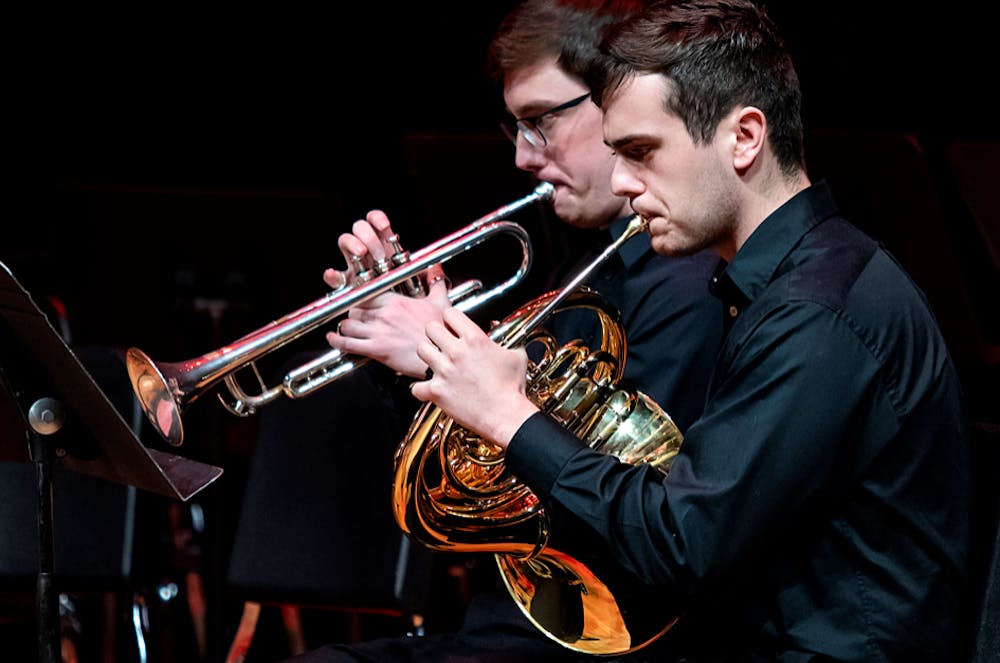Imagine a venue that seats about 200 people. Now, imagine being asked to perform music in front of this crowd with only three or four other students, all without a conductor to guide you.
For some, this may sound terrifying, but for the students that make up UNC’s brass chamber groups, this is what they have prepared for.
The two groups, which consist of a tuba quartet and a brass quintet, will be on display in their upcoming concert on Nov. 19 at 8 p.m. in the Kenan Rehearsal Hall. This is not your typical concert band experience.
“The way these chamber music groups work is, there is no conductor,” said Professor Michael Kris, director of the brass chamber groups.
Kris said chamber music is an ensemble that is small and not conducted. It is an antiquated term that stems from a time where the music was played in small chambers, rather than banquet halls or cathedrals.
Without a conductor to guide them, students have a much greater individual responsibility to communicate and determine what kind of sound they want the group to have, Kris said.
“For a music student who comes up in the American band or orchestra tradition, you're always having to do what the director tells you to do,” Kris said. “With a chamber music ensemble, it's decided more as a democracy what the group is going to do, and it's really hard for students at first to say, ‘I think that it should go this way’ because they've been so programmed to have no opinion but do what they're told.”
This kind of individual responsibility creates a risk not seen in other kinds of musical performances. For Hayes Dunlevy, a senior who plays the tuba in both the tuba quartet and brass quintet, that kind of risk was part of the appeal. Dunlevy said it is easier to descend into confusion and dissonance in a smaller group like the brass chamber ensemble.
“The whole thing, like the endeavor of playing music can kind of fall apart and fail more easily if any one person is out of it, as opposed to in the large group,” Dunlevy said.



